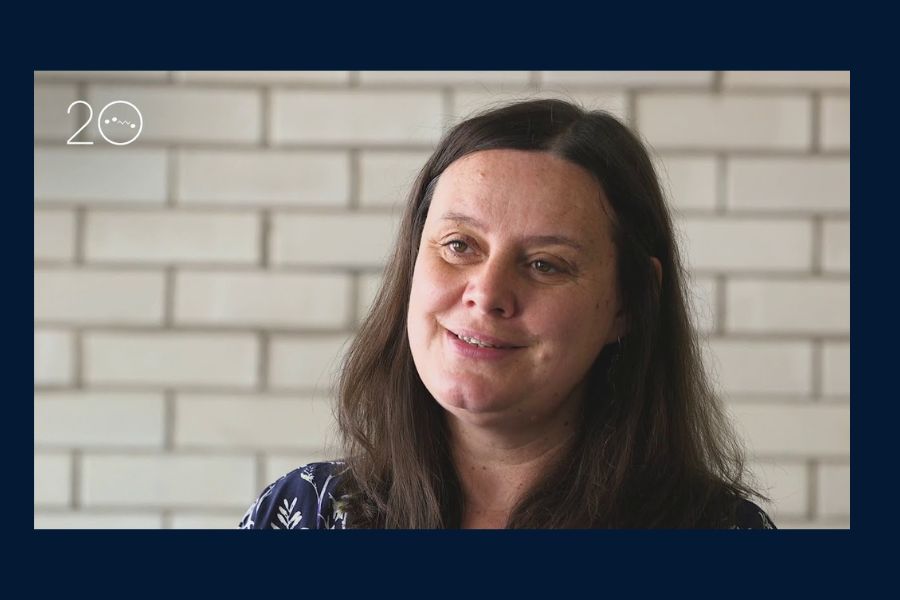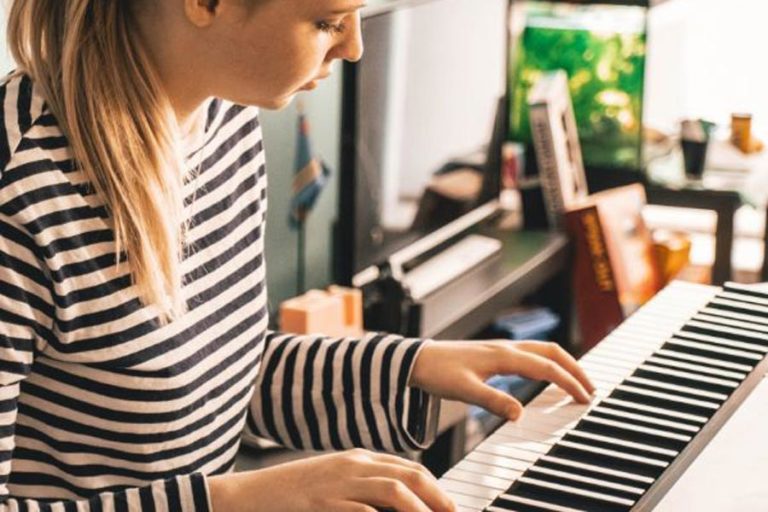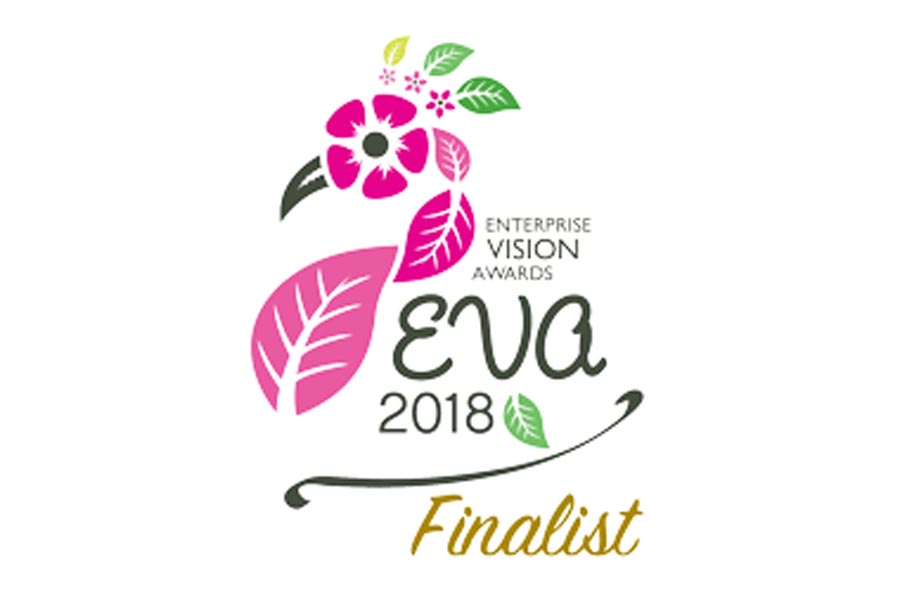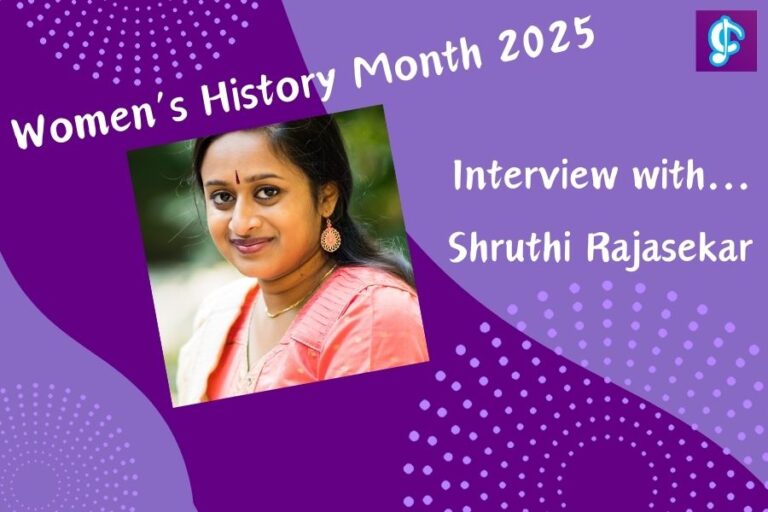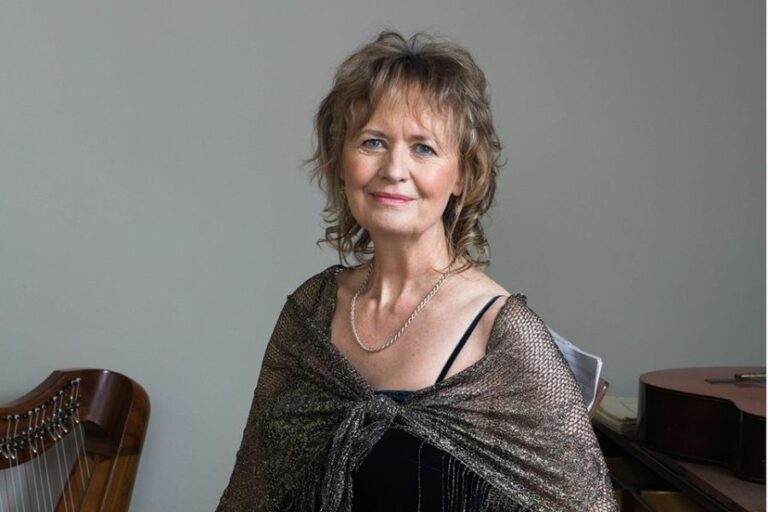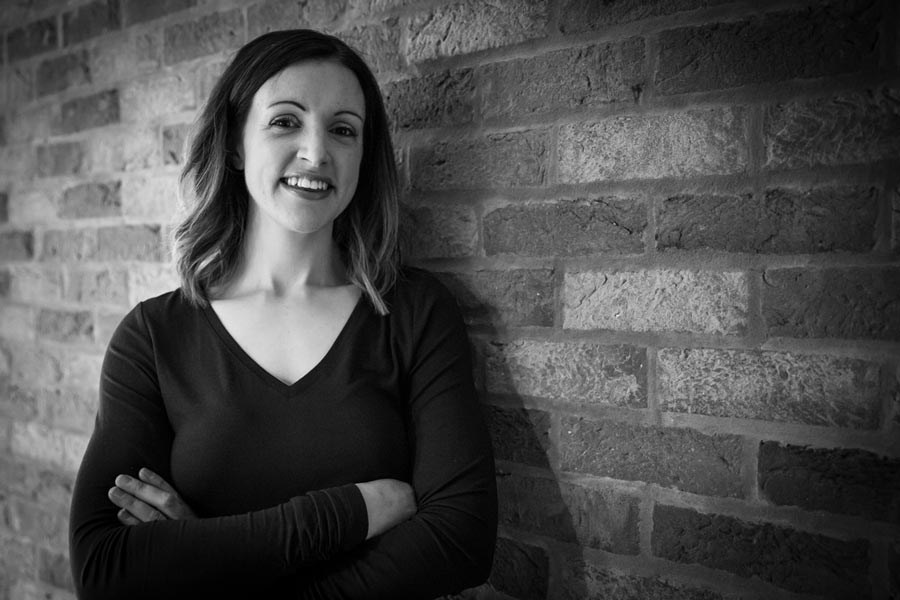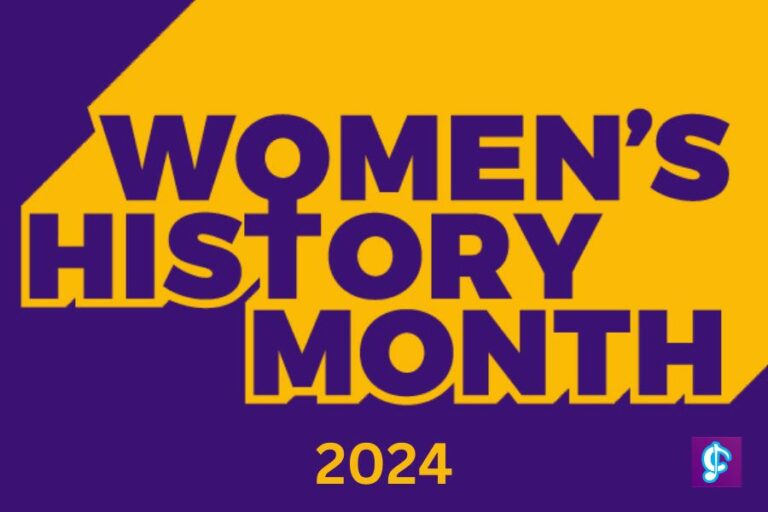Nancy Evans is the Director of Learning & Participation for Birmingham Contemporary Music Group (BCMG), a role she has been in since 2000. Nancy is passionate about working with living composers and getting children and young people creating and performing new music.
Can you share some of your musical journey to where you are now? What was your experience as a child and teenager?
I started playing the recorder at primary school then began cornet through a local brass band before progressing onto the trumpet. I spent many happy years playing in local brass bands, youth big bands/jazz orchestras and later on at county level. I was lucky – we went on tours, took part in Music for Youth at the Southbank and were regularly invited to perform at the Schools Proms at the Royal Albert Hall.
My experience of curriculum music was not great. Music did not exist as a subject at primary school and for the first three years of secondary school we sang popular songs badly, played glockenspiels and learnt facts about the lives of composers.
I was the part of the second cohort that took GCSE music and was composing music for the first time with little or no guidance. Clearly, I was absorbing ideas from my other musical experiences which also included being taken regularly to hear the Northern Sinfonia and the BBC Philharmonic. When I was around 16, I started to study with Murray Greig, the principal trumpet of Opera North, and continued with him at the RNCM. At the same time, I got involved volunteering with the Hallé orchestra’s outreach programme – in one seminal project exploring Lutoslawski I remember working with Gillian Moore and James Macmillan. It opened my eyes to other ways of making music, to contemporary music and to other career options.
Towards the end of my time at RNCM I responded to a random advert to teach brass at a Quaker primary school on the West Bank, in the Occupied Palestinian Territories. I went to Ramallah and taught brass and classroom music at what is now the Edward Said Conservatoire of Music and Ramallah Friends School. I absolutely loved my time there and could have easily stayed but felt I was professionally stagnating and needed to do something new. I moved back to UK and did an MA in Community Music at York University. From there I took the job of Education Officer with the City of Birmingham Symphony Orchestra before becoming BCMG’s first Education Manager in 2000.
Tell us about BCMG (Birmingham Contemporary Music Group)…
BCMG was founded by Simon Clugston and Ulrich Heinen, musicians from the City of Birmingham Symphony Orchestra, in 1987, with Sir Simon Rattle as Founding Patron. BCMG believes that music has the power to bring people of all ages and backgrounds together. The ensemble aims to build an inclusive community of composers, musicians, and audiences; enabling them to share their spark of imagination, creating beautiful and strange sounds. BCMG embraces change, questions the ordinary, and celebrates brave choices.
BCMG is an Arts Council National Portfolio organisation and has commissioned over 175 pieces of music from the world’s finest composers and emerging international talent. Many of the works have been commissioned through its innovative pioneering Sound Investment crowd-funding scheme to which over 500 donors have contributed more than £300,000; many of these works have subsequently found their way into worldwide repertoire. Its long-established Learning and Participation programmes actively engage young people in composing and performing and have earned BCMG nationwide recognition.
What does your role as Director of Learning and Participation involve?
I strategically manage BCMG’s Learning and Participation. This means that I am responsible for the overall direction and content of the programme. I develop projects with artists and partners; select the artists we want to work with; work with BCMG’s Artistic Director to integrate and connect to the performance programme, work with other members of the BCMG to market, film, and fundraise for the programme; contribute to wider discussions and actions in music education and arts education in the city; create digital resources for our online resource hub; lead our Music Maze project; manage a team of 3 part time staff; build partnerships with other organisations; report to funders; ensure project evaluation takes place; strategically contribute to discussions about children composing including giving workshops and lectures to Higher Education students.
You have been in this role 22 years now – what has changed in this time?
A lot! National initiatives have come (and some have gone) – Creative Partnerships, whole class instrumental tuition, 2 National Plans for Music Education and Music Education Hubs. Local Authority funding has all-but disappeared and the Arts Council priorities have changed. The rise of digital – concerts, resources and meetings; young people moving away from pencil and paper to notation software; the office has become mostly paperless. In 2016 when Jackie and Stephen Newbould, who led BCMG for many, many years left, there was a change of leadership and direction. Whilst singing and learning an instrument continue to dominate music education policy, there is more recognition of the importance of other aspects of musicality such as composing, than there was. However there is still a long way to go!
What have you noticed about the number of female composers coming through BCMG? What can be done to support women composers?
BCMG has had historically significant relationships with female composers such as Judith Weir and Tansy Davies both of whom they have commissioned a number of times. A number of our Apprentice Composers in Residence have been women including Charlotte Bray and Shiori Usui both of whom we have commissioned multiple times. However, I think more recently there has been a conscious effort to perform and commission more female composers – not quotas but a steady and significant rise.
I am certainly more conscious of the composers I pick to explore in workshops and create digital resources around. I lead BCMG’s composing club Music Maze for 7-11 year olds and composer Dr Kirsty Devaney leads our intermediate group BCMG Young Composers, hopefully providing good role models to aspiring female composers. In our current primary school project Listen Imagine Compose Primary 4 of the 8 composers are women.
What does a typical week look like for you?
A typical week includes lots of internal meetings with my team and the wider BCMG team, and some external meetings with partners such as our Music Education Hub Birmingham Music Education Partnership or Local Cultural Education Partnership Birmingham Creates. There might be project meetings with specific project managers and partners to discuss progress of projects or what needs to be done next. I usually spend some time creating or editing digital resources, contributing to funding applications, sometimes some school visits and often leading workshops – with children or with teachers and composers
Part of BCMG’s mission is to introduce people to the world of contemporary music and expand their perspectives. This can’t be easy – how do you start to get people on board with unfamiliar styles & approaches?
The best way to do this is to create opportunities for young people to meet and work with living composers. We work with a diverse range of composers as it is important for young people to know there’s someone like them out there and that they too could be a composer. Once children and young people are engaged in composing themselves and making composing decisions, they also begin to listen to music differently and with more open ears.
For young audiences, we have created special concerts which try to find interesting and new ways to share our repertoire, for example, through using other media such as theatre, visual images and film to help illuminate the music. This is in addition to thinking very carefully about which repertoire to share. Read more about our family concerts HERE
And for adult audiences, BCMG BCMG has had its own a version of crowd funding (before the term was invented) through our Sound Investment scheme. For a modest fee anyone can buy ‘sound units’ which entitles them to their name in the score, meeting the composer, attending rehearsals and much more. Not only did this support the commissioning of new music but created a loyal and knowledgeable audience.
Can you share a couple of the most memorable projects / concerts you have worked on with BCMG?
In terms of concerts, the performance of Accordo for 4 wind bands by Luciano Berio at the ICC in Birmingham, and Simon Rattle conducting BCMG performing Bass Inventions by Mark Anthony Turnage at the Concertgebouw in Amsterdam are the most memorable.
Music Maze, our monthly composing club for 8-11 year olds which I lead, is very special to me as it has been a laboratory for ideas for so many years and I have seen so many young people progress through the workshops. A particular highlight was leading a Music Maze workshop on stage at Museo Nacional Centro de Arte Reina Sofía in Madrid.
What is the most rewarding aspect of working at BCMG?
The variety! One minute I’m working with young people and supporting them to create new music, the next talking about composing pedagogy with researchers. Also, hearing new music come to life from so many fascinating composers and being part of that process is very special.
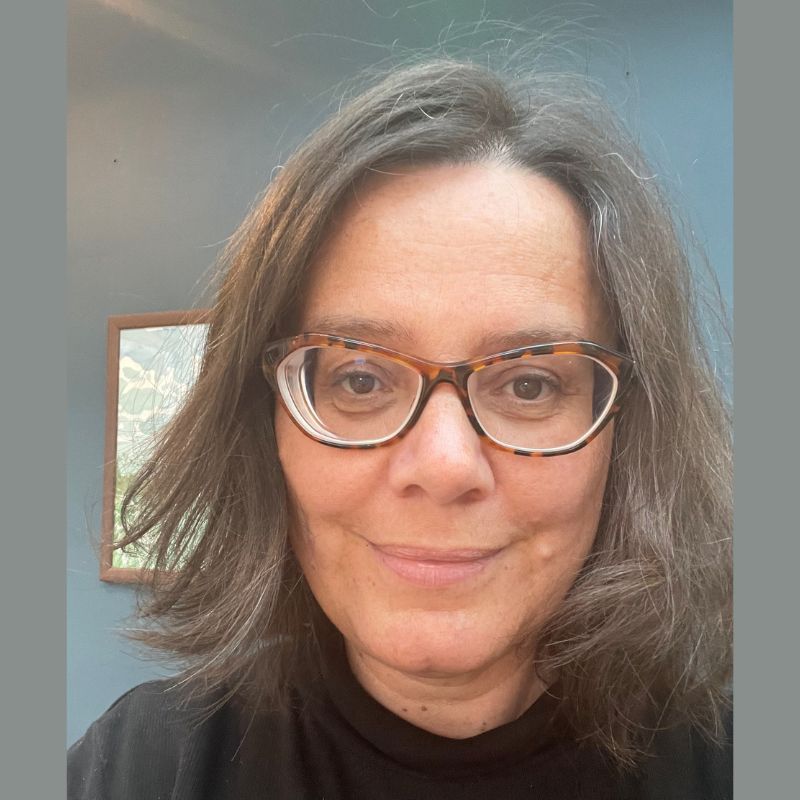
About Nancy Evans
Nancy Evans is Director of Learning & Participation for Birmingham Contemporary Music Group (BCMG) where she has worked since 2000. She studied classical trumpet at the RNCM with Murray Greig and Howard Snell and has an MA in Community Music from the University of York. In her role at BCMG, Nancy has created ongoing opportunities for young people to
compose, perform and listen to new music, in and out of school. She is also a creative practitioner and leads BCMG’s Music Maze workshops. Currently, she is leading Listen Imagine Compose Primary, a 2-year project exploring children’s composing at key stage 2 in partnership with Birmingham City University and Sound and Music. Nancy has presented papers, contributed case studies and co-authored articles and book chapters on the pedagogy of composing and musician/composer/teacher collaborations.
Nancy previously worked as an early years music specialist, conceiving and leading training programmes and projects with musicians and early years practitioners for a range of organisations including: The London Symphony Orchestra; The Wigmore Hall; The Royal Scottish National Orchestra; and, The Royal Liverpool Philharmonic.
Twitter: @cloudgazing @BCMG
Facebook: /bcmgfans
Instagram: bcmg_photos
Websites: www.bcmg.org.uk and BCMG learning resources
Youtube: https://www.youtube.com/user/bcmgtv
